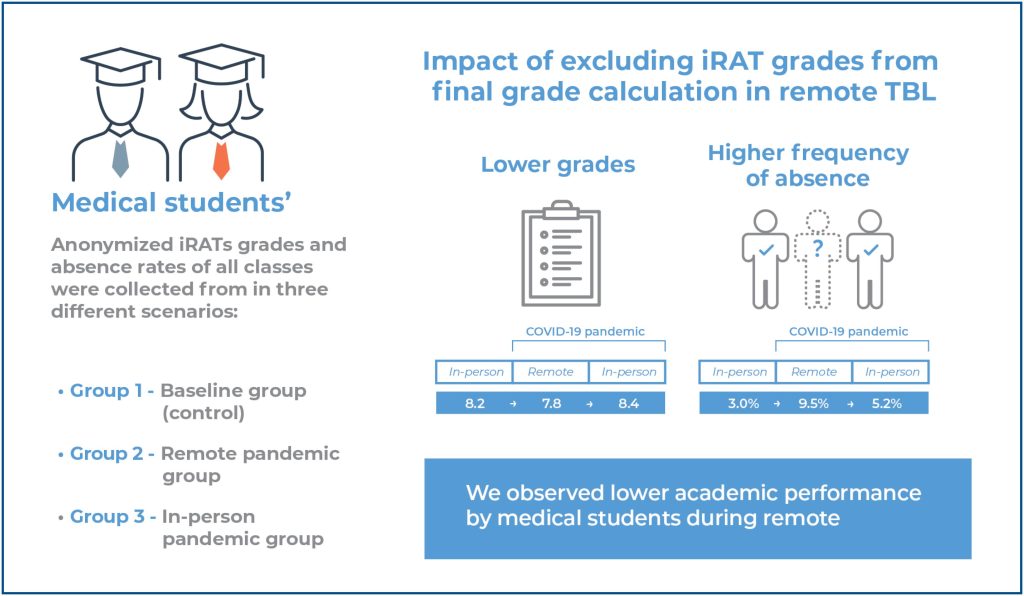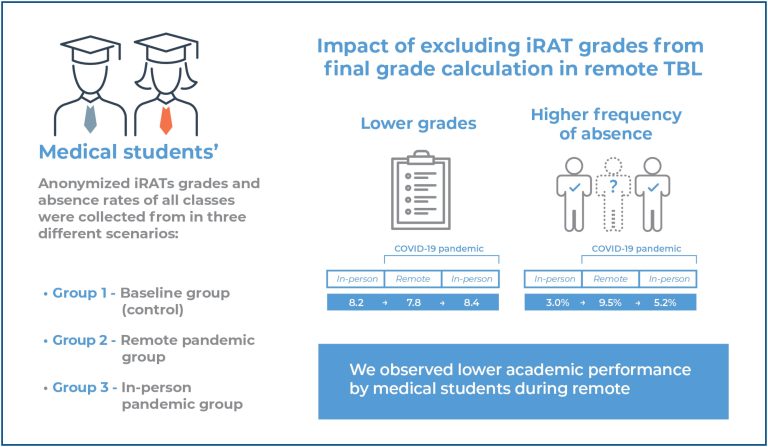einstein (São Paulo). 24/jan/2025;23:eAO1007.
Remote team-based learning during COVID-19: lower academic performance is associated with the exclusion of test grades from final grades
DOI: 10.31744/einstein_journal/2025AO1007
Highlights
■ Remote team-based learning sessions were conducted during the COVID-19 pandemic, and their grades were not included in the final course grade calculation.
■ Remote team-based learning resulted in lower iRAT grades than in-person team-based learning, independent of the semester.
■ Remote team-based learning resulted in more students failing the test than in-person team-based learning.
■ Remote team-based learning resulted in lower student attendance than in-person team-based learning.
ABSTRACT
Introduction:
The COVID-19 pandemic necessitated a shift from in-person to remote learning, including team-based learning activities. Many studies have explored several aspects of teambased learning; however, there is still a lack of knowledge regarding the factors affecting students’ attitudes and performance.
Objective:
To evaluate the impact of the COVID-19 pandemic on medical students’ performance in individual readiness assurance tests during teambased learning activities, given that their grades were excluded from the final course grades.
Methods:
We compared the number of team-based learning applications, student absences, and individual readiness assurance tests grades of medical undergraduate students in three different scenarios: Group 1, in-person individual readiness assurance tests before the pandemic; Group 2, remote individual readiness assurance tests during the lockdown period when their grades were excluded from the final grade calculation; and Group 3, in-person individual readiness assurance tests during the pandemic after lockdown restrictions eased.
Results:
Remote team-based learning led to significantly lower grades than in-person evaluations. Moreover, the number of students with failing or insufficient grades (below seven) increased during the remote learning period, when their grades were excluded from the final grade calculation, compared to in-person individual readiness assurance tests before the pandemic. Furthermore, absenteeism was higher when the online strategy was applied.
Conclusion:
We observed lower academic performance by medical students during remote team-based learning sessions, likely owing to the exclusion of individual readiness assurance tests grades from the final course grade calculations during the COVID-19 pandemic.
[…]
194



